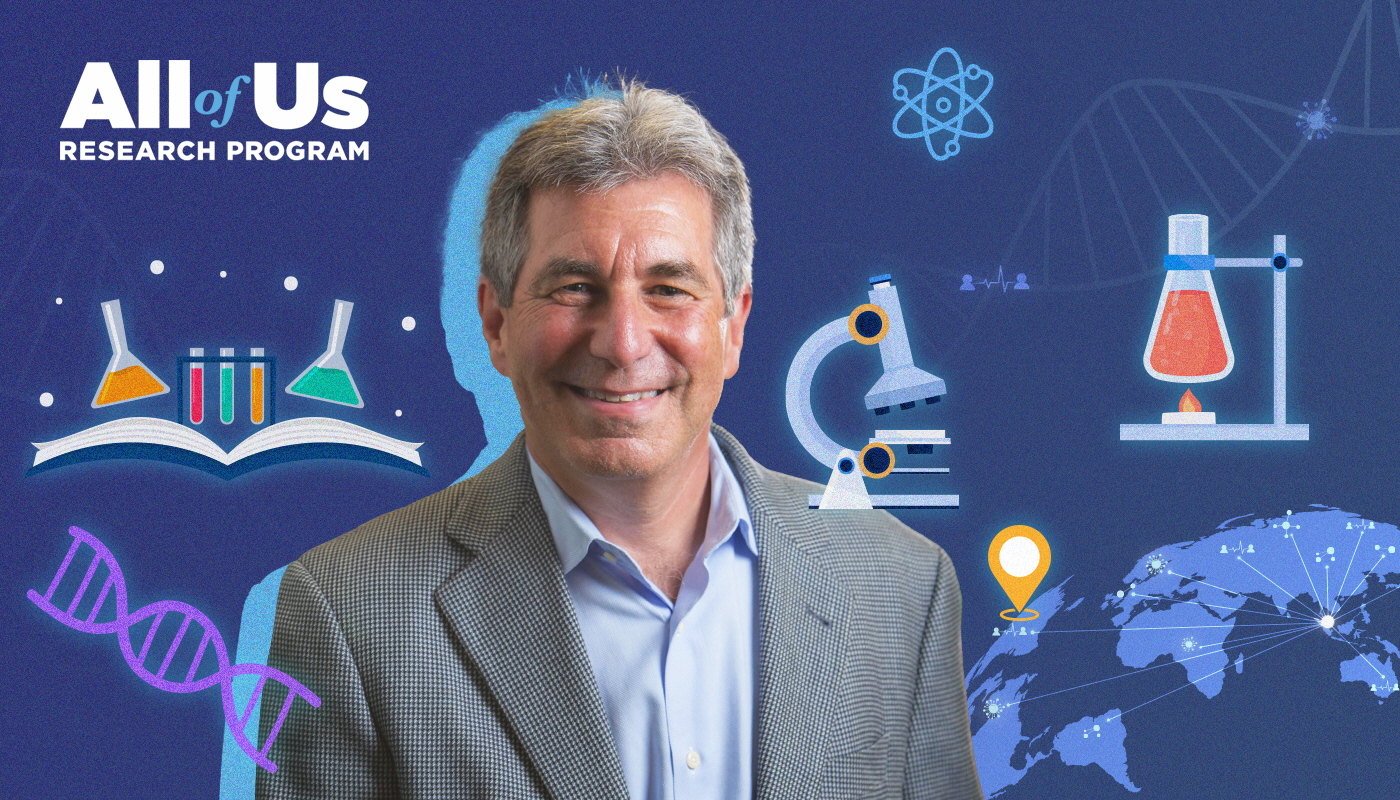All of Us: Advancing Precision Medicine for All

Beginning recruitment in 2018, the All of Us Research Program has enrolled over 860,000 participants as of 1 May 2025.[1] More than 633,000 participants have gone on to contribute data such as biosamples, data from wearables, and physical measurements. Over 414,000 whole genome sequences have also been made available as a research resource for researchers within the All of Us Researcher Workbench.[2]
All of Us was conceived in 2015, with the goal of enrolling one million participants across the U.S. Health data collected from these participants is being used to create one of the world’s largest databases for healthcare research—with the aim of accelerating medical breakthroughs and paving the way for precision medicine in the U.S.
Data that Reflects a Broad Range of Populations
Notably, 77% of All of Us participants come from groups whose health outcomes have been studied to a lesser extent in biomedical research. Of these, 42.3% identify as racial and ethnic backgrounds such as African American, Hispanic or Asian. This representation is by design, to reflect the programme’s commitment to making research more inclusive.
Dr Geoffrey Ginsburg, Chief Medical and Scientific Officer at All of Us, explained, “All of Us aims to advance precision medicine research for everyone in the U.S. To do that, our participants need to reflect a wide range of age groups, backgrounds, and life experiences. That’s why we are strongly committed to reaching out to a broad range of populations.”
To overcome these challenges, All of Us has adopted a proactive approach. Dr Ginsburg said, “We are very intentional about reaching people where they are—and very targeted in the ways we engage specific groups. How can participating in All of Us fit into their life if they are a single mum or part of a minority group? That’s something we devote a lot of time to thinking about.”
With this guiding principle, the team came up with the idea of mobile vans to reach participants living in rural communities. “The vans travelled around the country—sometimes to places where they might never have seen a researcher before—and parked themselves somewhere easily accessible. Say, near the supermarket. People could then get their groceries—and enroll in All of Us without departing from their usual routine,” Dr Ginsburg shared.
Building Trust Within the Community
Another factor that Dr Ginsburg credits with All of Us’ success in recruiting a large number of participants is—the engagement and support of community leaders. He said, “Sharing something so personal like healthcare information requires a great deal of trust. That’s why we work hard to engage with community leaders. Their support and insights are instrumental in helping us reach an even wider group of populations with limited access to research opportunities.”
The All of Us team is committed to reciprocating participants’ trust and support. Since late 2020, All of Us has returned personalised health-related findings to about 230,000 participants. These findings include increased risks of conditions such as hereditary cancers or heart disease.
Dr Ginsburg said, “It’s a two-way street—they shared their data and biosamples with us, so it’s only right that we return the gesture by sharing information that could affect their health and healthcare decisions.” To ensure accessibility, care is taken to write the reports for easy understanding by the layperson, and the results are presented in a user-friendly web interface. The information is also hosted on a private and secure platform, with all participant data encrypted.
Data that Drives Innovation and Insights
Concurrently, researchers are hard at work combing through the depths of the data All of Us has collected. As of June 2025, over 17,000 researchers from more than 1,100 organisations worldwide have registered to use the All of Us data analysis platform, the Researcher Workbench. [3] [4] The Researcher Workbench is a secure, cloud-based platform that provides registered researchers access to a wide array of health data, including genomic, electronic health records, and survey data. It offers tools for data analysis and collaboration, facilitating research aimed at advancing precision medicine. [5]
Dr Ginsburg said, “The goal was to have 10,000 researchers using our data by 2026—but we are way ahead of that. I’m also glad to say that many of our researchers come from many different types of institutions that serve broad audiences in the U.S., such as historically black colleges and universities (HBCUs). The broad spectrum of researchers working on All of Us data reflects that of our participants.”
However, All of Us is not simply chasing the metrics. Dr Ginsburg said, “The more eyes we have on the data, the more creativity, innovation, and insights we can derive from All of Us. By having such a varied group of researchers, we also open the door to addressing health issues in less-studied populations who experience the greatest burden of disease.”
This philosophy has seen a steep growth in the findings derived from All of Us data— more than 275 million previously unreported genetic variants have been identified, and over 650 papers published. However, more remains to be done.
Translating insights into Clinical Practice
All of Us is looking to support researchers in translating their findings to clinical practice, as well as engage with industry on clinical trials and drug discovery and development. Other plans include scaling up recruitment of paediatric participants pending funding, along with including more data types such as imaging.
“While these are our current plans, I think ‘what’s next’ will be a question we will ask ourselves each year. And hopefully, we will have a different answer each time—in keeping with society’s needs and the changing environment. After all, we are just starting out on our journey to advance precision medicine and improve health in the U.S.—and hopefully, even beyond our borders,” Dr Ginsburg concluded.

